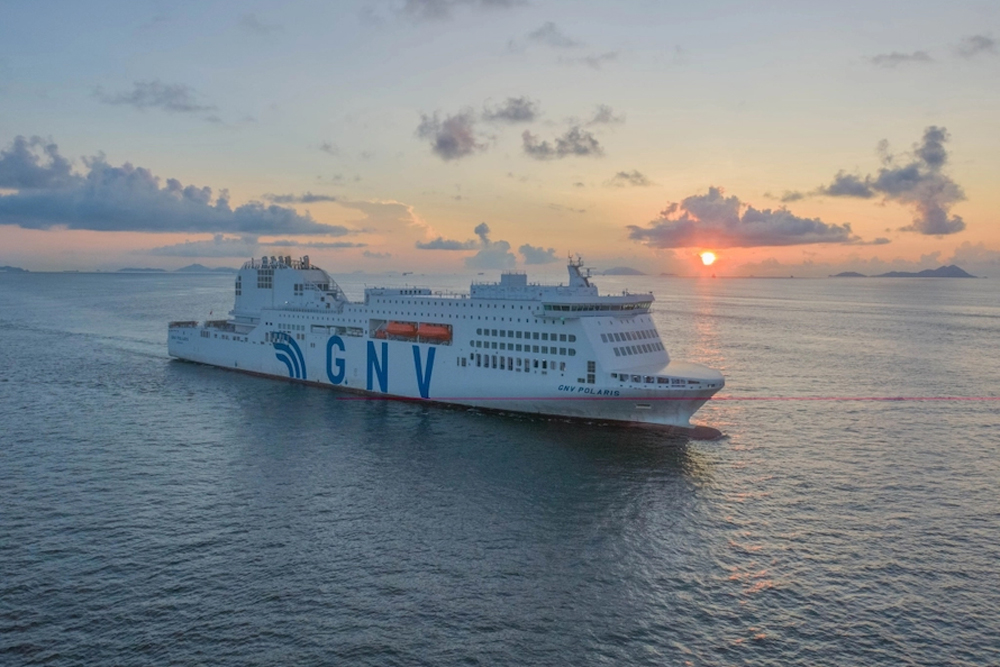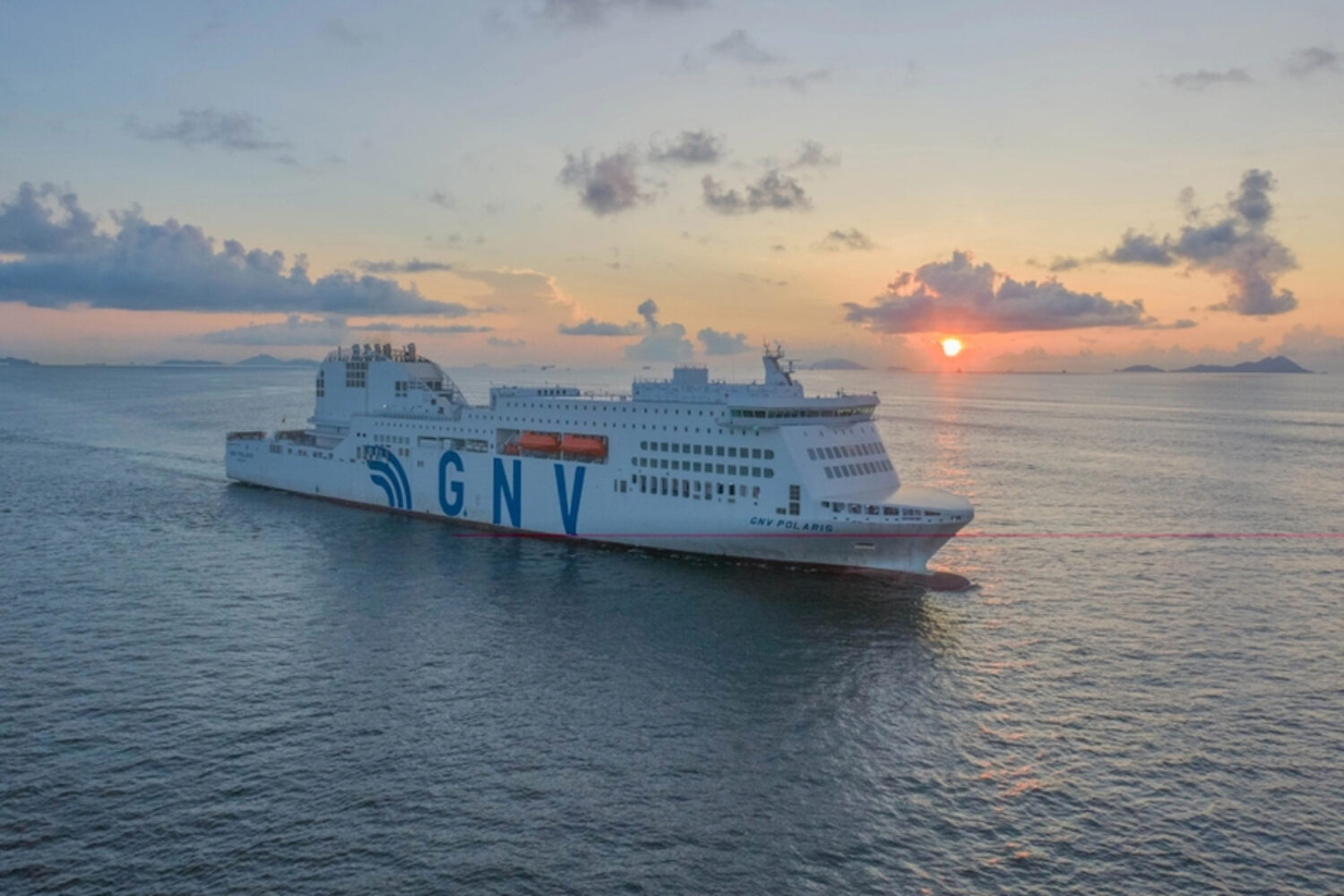Grandi Navi Veloci (GNV), the Italian ferry company of the MSC Group, has now taken delivery of the 218-metre-long “GNV Polaris”, the first of four ro-pax vessels that will join GNV’s fleet by 2026.
The ship will shortly be sent on a transfer voyage from the Guangzhou Shipyard International (GSI) shipyard in China to Italy and, following final customisation work, will be deployed on the Mediterranean routes, in particular to Sicily and Sardinia, from January 2025.
With state-of-the-art technology, high energy efficiency and the option of using shore power, the “GNV Polaris” (IMO 9948592) marks a significant step in the fleet renewal and sustainability strategy, the shipping company announced. The ferry offers space for 1,500 passengers, 239 cabins and 3,100 metres of cargo capacity.
The subsequent, second ship in the series, the “GNV Orion”, will not be a direct sister ship to the “GNV Polaris”, however, as it will have an extended accommodation area with more cabins and public rooms. This ship will have a capacity for 1,785 passengers in 420 cabins and 2,780 lane metres on the three cargo decks. The third ship in the series – the “GNV Virgo” – and the as yet unnamed fourth ship will also be equipped with dual-fuel main engines and two “C” type LNG tanks.
“Polaris” a “significant step” for GNV
“The delivery of the ‘GNV Polaris’ marks a significant step for GNV in the process of fleet renewal, which includes both the expansion with new vessels and the modernisation of the existing fleet. At the same time, less efficient units will be gradually taken out of service. This will enable us to present an offer of the highest quality and service in the coming years and position ourselves as a leading provider in the Mediterranean,” says GNV CEO Matteo Catani.
“Just as importantly, this new ship will make a significant contribution to reducing our environmental footprint thanks to its outstanding energy efficiency and ability to use shore power. It accelerates our journey towards greater sustainability, which we have embarked on with full conviction. As part of the MSC Group, we want to actively contribute to reducing the environmental impact of the entire industry.”
All new ferries in this series will be equipped with advanced exhaust gas cleaning systems (EGCS) and selective catalytic reduction (SCR) to meet IMO Tier III requirements. They also feature numerous energy-saving technologies, such as heat recovery using turbo generators, inverters to optimise the electrical load of pumps and fans, full LED lighting and aerodynamic optimisation of the hull, bulbous bow, propellers and rudders. The coating of the hull with silicone paint also helps to minimise fuel consumption for the propulsion system. (CE)














